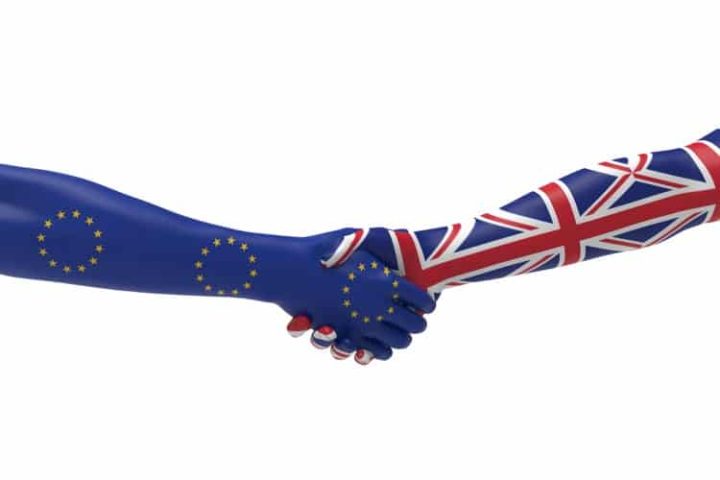
Negotiators for the European Union and the United Kingdom came to an eleventh hour trade agreement on Christmas Eve. If ratified, it is hoped that the agreement will avert potential economic chaos on January 1 when the UK officially leaves the EU bloc of nations.
For the past 11 months, UK trade has been governed by EU rules during a transition period from EU membership back into a self-governing nation. Negotiators used almost the entire transition period to come to an agreement on just how future trade between the two entities would proceed.
Both the UK and EU parliaments will have to vote to ratify the reported 2,000 page agreement. The UK parliament has scheduled a vote for December 30 but the EU has not yet set a date for the vote.
“We have taken back control of our laws and our destiny,” said UK prime minister Boris Johnson.
Johnson hailed the agreement at a press conference, saying it would “protect jobs across the country,” as well as, “enable UK goods to be sold without tariffs, without quotas in the EU market.”
“It was a long and winding road, but we have a good deal to show for it,” said European Commission President Ursula von der Leyen. “It is fair, it is a balanced deal, and it is the right and responsible thing to do for both sides.”
The deal purportedly avoids a potentially chaotic “no deal” Brexit or “crash out” as some call it, which critics said would snarl ports and even cause temporary shortages of medicines and some food items.
“We have now come to the end of a very intensive four-year period, particularly over the past nine months, during which we negotiated the UK’s orderly withdrawal from the EU and a brand new partnership, which we have finally agreed today,” said chief EU negotiator Michel Barnier.
Barnier’s rival for much of the four-and-a-half year Brexit saga was British politician Nigel Farage, a former member of the EU parliament for the UK. Farage sounded a cautious approval of the trade deal.
“At least the charade of no-deal is over with. I never believed a word of that,” Farage said. “What I was pleased about was when Monsieur Barnier looked a little crestfallen when he said the British have not agreed to cooperate in terms of foreign policy and defense. Well, let’s hope that stays that way because that’s a big step forward from where we were just a year ago.”
Both sides are claiming their share of victories on key terms of the agreement. Terms of the agreement are still being disseminated although it is known that under the new terms, there will be no tariffs and no quotas between the UK and EU.
EU citizens will no longer be able to live and work in the UK without visas and vice versa — but people already doing so — approximately 4 million of them — will be grandfathered in and will not be affected by the new agreement.
The all-important issue of fishing off of UK waters was solved with a five-and-a-half-year transition period, during which EU fishermen can still operate up to six miles from coasts of the United Kingdom. Johnson and the UK had wanted only a three-year transition period, while the EU wanted a fourteen-year transition period.
UK fisherman wanted a 12-mile coastal limit and a cleaner break from EU rules. “The industry will be bitterly disappointed that there is not more of [a] definitive break,” said Barrie Deas, the chief executive of The National Federation of Fisherman’s Organizations told Rueters. “It’s a bit of a fudge.”
The deal also assures that there will be no hard border between the Republic of Ireland, which will remain in the EU and Northern Ireland, a part of the UK.
The EU’s highest court, the European Court of Justice (ECJ) will have no direct role in policing trade disputes between the EU and the UK. One exception to this is Northern Ireland, which, because of its border with the Republic of Ireland, will remain subject to EU single market and customs union rules.
“Here’s the really important thing to remember. Imperfect, though this new EU treaty may be, we have made the most colossal step forward. Leaving the EU is the biggest constitutional change in our country for three hundred years,” Farage said, summing things up.
“This was a genuine democratic revolution that took place within our country,” Farage concluded.
There will still be rhetorical and economic skirmishes between the UK and the globalist bloc of nations, but Farage is correct. The will of the British people will finally be recognized and the United Kingdom will be self-governing once again starting January 1.




